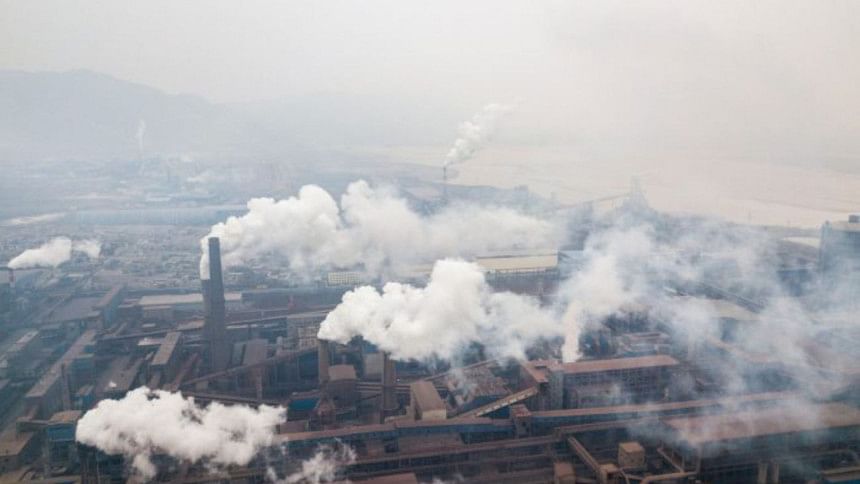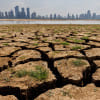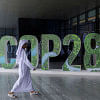COP24: Will the major polluters pay?

The 24th Conference of the Parties (COP24) of the UN Framework Convention on Climate Change (UNFCCC) is going to be held in Katowice, Poland from December 2 to December 14, 2018. This COP is mandated to adopt the Rule Book for the Paris Agreement Work Plan. It may be recalled that at COP21, the Paris Agreement (PA) was adopted to ultimately replace the Kyoto Protocol (KP), which was a top-down, legally binding emission reduction commitment by the developed nations.
The US, then the number one emitter, never ratified the KP, rendering it virtually ineffective despite the fact that the European Union lived up to its reduction commitment. Developing countries including major emitters like China, India, Brazil and South Africa were exempted. Ultimately, the PA was born as a bottom-up process under which all countries pledged to comply with their submitted Nationally Determined Contributions (NDCs).
Under the Paris Agreement as a quasi-legal instrument, procedural issues like submissions of NDCs and their stocktaking every five years have been made legally binding for all, but the substantive issues such as emissions reduction by countries have been kept voluntary. This was done to buy universal ownership, only to avoid a truncated world under the KP. But estimates show that even if all countries fully comply with their NDC pledges, global temperature will still rise by almost 3 degrees Celsius, compared to the pre-industrial level. But the PA put an upper limit of 2 degrees Celsius, with an aspirational goal of keeping it below 1.5 degrees Celsius. Based on just a peer-review process, with no punitive compliance mechanism, runaway climate change as warned again by the latest IPCC Report on 1.5 degrees Celsius can hardly be arrested.
So what is expected at COP24? Under the PA's dispensation, each country will claim its pledge as fair and ambitious compared to others. The developed world, stipulated to lead the process, will focus more on the review and transparency mechanisms to ensure compliance to submitted developing country NDCs. In all likelihood, self-differentiation based on self-righteousness will not succeed. For the sake of adoption of a universal agreement, major developing country emitters agreed in Paris to a truce on differentiation in mitigation obligations between them and developed nations as stipulated in the Convention, in a somewhat attenuated form. But this rancour is already raising its ugly head, as the 304-page negotiating text shows. The latest few agenda-based documents from the Track Co-Chairs, posted on the UNFCCC website, are reflective of the same verbiage, with all options proposed by countries.
With parallel negotiations in six tracks with many sub-tracks, how will the much-awaited Rule Book be prepared in only two weeks? There is no reason to believe we already live in a post-equity world in climate diplomacy. Between the never-ending catfight among major emitters on both sides, the LDCs as nano-emitters are sandwiched, which have very modest expectations of financial and technology support mainly for adaptation, loss and damage, and capacity building. In between these max-mini emitters, there are goodwill alliances, such as Cartagena Group or Climate Vulnerable Forum, which try to mediate and reach out for consensus. Will they succeed in taming the most diabolically complex and intractable problem?
I argue that the root of this intractability lies in a few biological and manmade conventions. Biologically, human beings tend to maintain a state of equilibrium, known as "homeostasis," in most of its physiological processes such as body temperature. If something happens to disrupt this balance, they react. The lack of adequate response to climate change is largely attributable to a long-term problem, as climate change, not the day-to-day weather, is a decadal issue; a stock, not a flow, problem, where yearly flow of emissions into the atmosphere shows no immediate impact, but growing stock over a few decades results in ratchet effects. So, we do not care about this temporal dimension much. But the poorest countries and communities already suffer from the unequally distributed spatial effects of climate change, who have hardly the needed adaptive capacity.
Then the traditional economics of climate change is not yet buying the major emitters in. They view costs to be much higher than the expected benefits, coupled with the problem of "free-riding" in providing a global public good. Economic decision-makers in major capitals are guided by the calculation of net present value of an investment, where distant benefits are discounted, simply undervalued. But the true lesson of the economics of pollution is to internalise the externalities, to correct market failures. Those who lead the market economy world can be condemned to "moral corruption", as one Western expert argues. Who cares when emissions fly into others' aerospace! But awarding the Nobel Prize in Economics this year to William Nordhaus, a Yale professor, who invested his life modelling for carbon prices on burning fossil fuels, is a loud message to negotiators of COP24 and beyond.
The final artefact of human convention in political science that holds the saddle back is the pervasive and persisting Westphalian lens of sovereignty, which sees national security/interests as a "zero-sum" game, that one loses when another wins. This centuries-old, purely national territory based perspective is held still dearly by many powers, both old and new. But climate change violates the basic human and development rights and the no-harm rule is already sacrosanct in Western societies. So holding on to the age-old sovereignty and national interests cannot deal with emerging global problems like atmospheric instability, which poses existential threat not just to small island and coastal states, but ultimately to us all. Obviously, we need a new lens of "pooled sovereignty", because power and interests have become positive-sum, a win-win game unquestionably mitigating global problems like climate change.
So, we the negotiators from the particularly vulnerable countries must send the message that the polluters must pay. This can generate billions of public climate finance. We hope that together with our alliance blocs the Bangladesh delegation to COP24, which includes this author, will play the lead in convincing the world that free-riding by the major emitters must stop. Only then can we fire back the impending geo-engineering into our atmospheric system, the base global public good that the survival of humanity depends on.
Mizan Khan is a Professor of Environmental Management, North South University, and currently, Visiting Professor, University of Maryland, College Park.










Comments